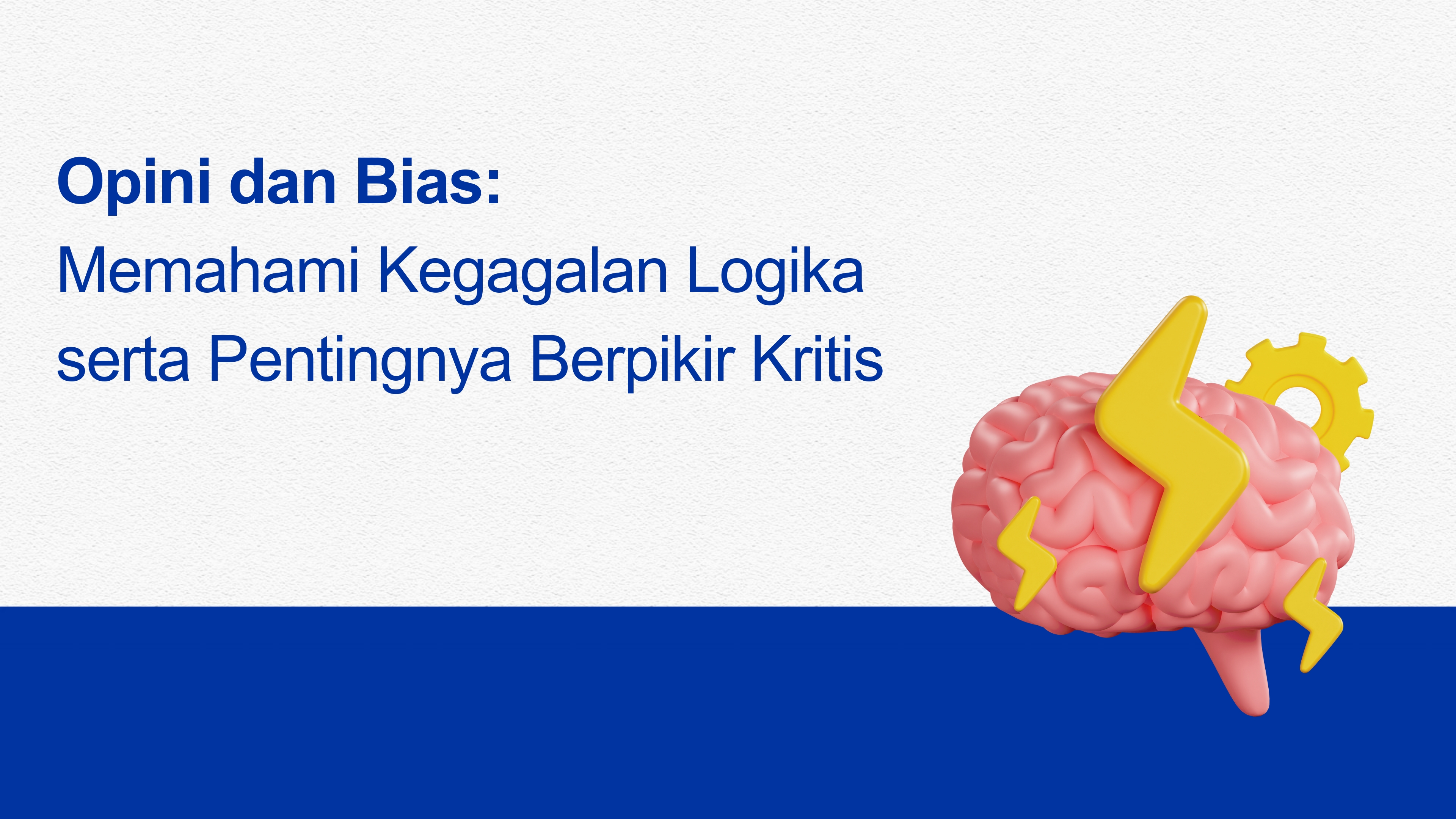Becoming a Professional: Self-Improvement in the Workplace
.jpg)
When engaging in work, a person will undoubtedly strive to apply their abilities to the fullest in the tasks they undertake. This reflects the professionalism that is implemented in each individual's work environment. Professionalism refers to the attitudes, behaviors, and standards expected in a particular profession.
It encompasses appearance, skills, and attitudes that demonstrate competence and expertise in a specific field. Professionalism is closely related to how someone behaves in the workplace and how they interact with colleagues, clients, and other stakeholders. However, it’s important to note that professionalism must also be balanced with a calm demeanor and controlled emotions when faced with certain situations.
Professionalism is a characteristic that naturally forms when someone allows space in their soul for it to grow. Every work environment has its own unique differences, depending on the field and corporate policies. An individual is required to first adapt to their environment to be able to embody professionalism. To achieve professionalism, one needs to implement the following foundational principles:
-
Loving the Work You Do
Fostering professionalism requires an open mindset, free from rebellious tendencies. Generally, when a person loves what they do, they will carry out their assigned roles effectively. This can also be applied in the workplace.
Loving one’s job can foster a sense of professionalism indirectly because work affects motivation, quality of performance, and personal satisfaction in the work environment. When someone loves their job, they are more likely to show greater commitment, work with enthusiasm and dedication, and strive for optimal results.
-
Clear and Calm Your Mind Before Learning
When a person joins a new institution, they will undoubtedly encounter many new faces that will provide various new experiences. At this time, it is recommended for individuals to have an open mindset. Openness not only fosters humility but also nurtures good relationships between seniors and juniors.
Emptying the "bucket" when entering a new institution also prevents stubbornness towards advice given. This encourages individuals to continue learning and growing, boosting creativity while maintaining a healthy work-life balance. In performing work tasks, don’t be afraid of making mistakes or becoming overly defensive.
-
Implementing Positive Mental Attitude (PMA)
A Positive Mental Attitude is a practice individuals apply in the workplace to create a conducive environment with colleagues. Implementing a Positive Mental Attitude (PMA) in the workplace brings significant benefits. A positive mental attitude encourages individuals to face challenges with more optimism, proactivity, and solutions-oriented thinking.
With a positive work environment, this will be reflected in the services provided to those around. Social environments tend to favor positivity, including within the workplace. Show a positive attitude and enthusiasm for your work. A good attitude can boost morale and motivate others around you.
-
Trust in Your Colleagues
If sufficient training has been conducted and someone can perform tasks well, trust in their results, carried out according to their capabilities, while ensuring regular supervision by skilled staff in the field. Building mutual trust fosters a stronger teamwork dynamic.
When colleagues trust one another, they are more likely to share ideas, information, and tasks openly. This creates a collaborative work environment where all team members can contribute without fear of judgment or sabotage. A trusting environment also enhances loyalty and job satisfaction, contributing to better professional performance.
-
Teamwork, Not Competitive Work
Depending on the profession, each job has varying levels of relationships and cooperation. For example, in the sales field, there is often fierce competition among colleagues due to the monetary achievement-based nature of the job. However, not all professions require such extreme competition.
In professions like athletics or public relations, individuals are not solely measured by the monetary results they generate. The work performed is collaborative or long-term in nature, and through cooperation, individuals are shaped to be more collaborative rather than the individualistic approach often seen in sales, where it's a "first come, first served" mentality.
By applying these fundamental principles, a person can navigate their office work while upholding a spirit of professionalism. Professionalism is not merely a symbol of adulthood or formalism but rather reflects integrity in character and adaptability in various work fields.
As students of Universitas Dian Nusantara who will soon enter the workforce, it is essential to remember that each work environment has its own unique dynamics. By embodying the core value of UNDIRA, which is professionalism, graduates are expected to become competitive and well-characterized individuals in their respective work fields. Work is not just about targets and obligations but also plays a role in shaping one’s character.
(Sekar Ayu Putri / Humas UNDIRA)
Press Contact :
Biro Humas & Sekretariat Universitas Dian Nusantara
Facebook : www.facebook.com/undiraofficial
Instagram : www.instagram.com/undiraofficial
Twitter : www.twitter.com/undiraofficial
www.undira.ac.id
Other

Opinion and Bias: Understanding Logical Fallacies alongside the Importance of Critical Thinking
Read more.jpg)
More Than Just Physical Fitness: Exercising Keeps Self Health In Balance
Read more
UNDIRA Welcomes Acceleration Programme for Higher Education Accreditation 2024: Implementation of Permendikbudristek No. 53 of 2023
Read more
Campus Tanjung Duren
Jln. Tanjung Duren Barat II No. 1
Grogol, Jakarta Barat. 11470
Campus Green Ville
JIn. Mangga XIV No. 3
Campus Cibubur
Jln. Rawa Dolar 65
Jatiranggon Kec. Jatisampurna, Bekasi. 17432







